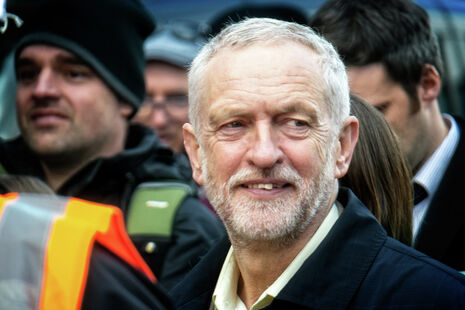
Corbyn’s departure from the centre has been vindicated
The Labour leader turned away from the Campbell-Mandelson theology of electoral strategy, and it paid off

Why did so few foresee the triumph of Jeremy Corbyn? Even his most committed supporters, those who continued to defend his leadership through two years of never-ending ridicule and derision, didn’t anticipate success on the scale witnessed on Thursday night. Labour’s clinching of the biggest increase in its vote share since 1945, on a platform whose radical character has long been dismissed as electorally suicidal, upends conventional understandings of politics.
“Irrespective of whether Jeremy Corbyn ever sits in Number 10, he has seized the moment to radically reshape the terms of political engagement”
So apparently implausible was the idea of Corbyn’s message speaking to anyone other than the already-converted, his unelectable ineptitude so taken as given, that his victories in Labour Party leadership challenges sent reputable commentators into meltdown. Cambridge’s own David Runciman opined in August 2015, with little trace of irony, that “if ever an election needed a bit of fixing it was this one”.
There is no doubt that countless figures who vocally opposed Corbyn – politicians, journalists and academics alike – did so from a place of implacable ideological hostility. Blair counselled that Corbyn’s politics were “wrong for the country”, regardless of their electoral appeal.
But many on the left retreated from Corbyn for fear that he was paving the way to annihilation. The belief that Labour could win only from the ‘centre-ground’, with moderation, was religiously held to by all but a few. This Campbell-Mandelson theology of electoral strategy consigned the party to a purely reactive political role, allowing manoeuvre solely within bounds imposed by its opponents. Whether it be the Thatcherite maxims internalised by New Labour, or the two Eds’ quivering in the face of Osborne’s dominant narrative on the financial crisis of 2008, the orthodox formula for success entailed perpetual defensiveness.
Above all, in viewing the ‘centre-ground’ as a fixed entity within which it must timidly triangulate, Labour missed the dynamism of political consensus. For the bold and politically astute, unique moments of crisis and upheaval lend themselves to re-configuration of what constitutes the ‘centre’.
Irrespective of whether Jeremy Corbyn ever sits in number 10, he has seized the moment to radically reshape the terms of political engagement, entering the consensus-shaping game which the Tories have long played alone. His unashamed reinvigoration of the rhetoric of class politics and foregrounding of inequality, anathema to predecessors trapped in the neoliberal centre, might have everyone declaring “we’re all Corbynistas now” before long
 News / Right-wing billionaire Peter Thiel gives ‘antichrist’ lecture in Cambridge6 February 2026
News / Right-wing billionaire Peter Thiel gives ‘antichrist’ lecture in Cambridge6 February 2026 News / John’s duped into £10m overspend6 February 2026
News / John’s duped into £10m overspend6 February 2026 News / Epstein contacted Cambridge academics about research funding6 February 2026
News / Epstein contacted Cambridge academics about research funding6 February 2026 News / Man pleads guility to arson at Catz8 February 2026
News / Man pleads guility to arson at Catz8 February 2026 News / Corpus FemSoc no longer named after man6 February 2026
News / Corpus FemSoc no longer named after man6 February 2026









